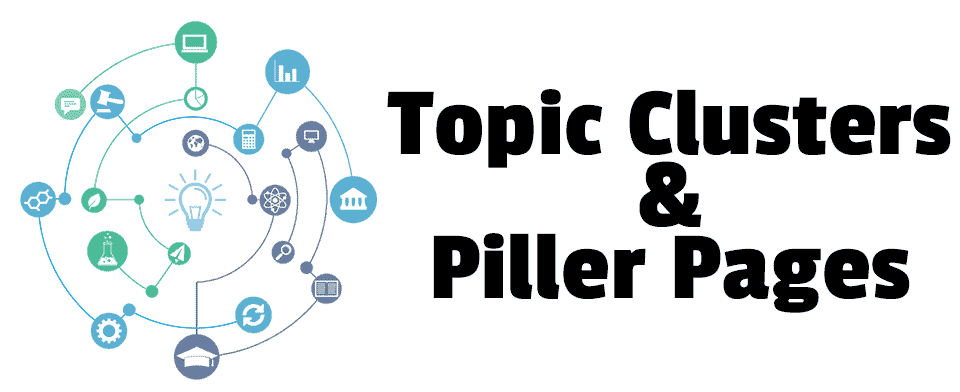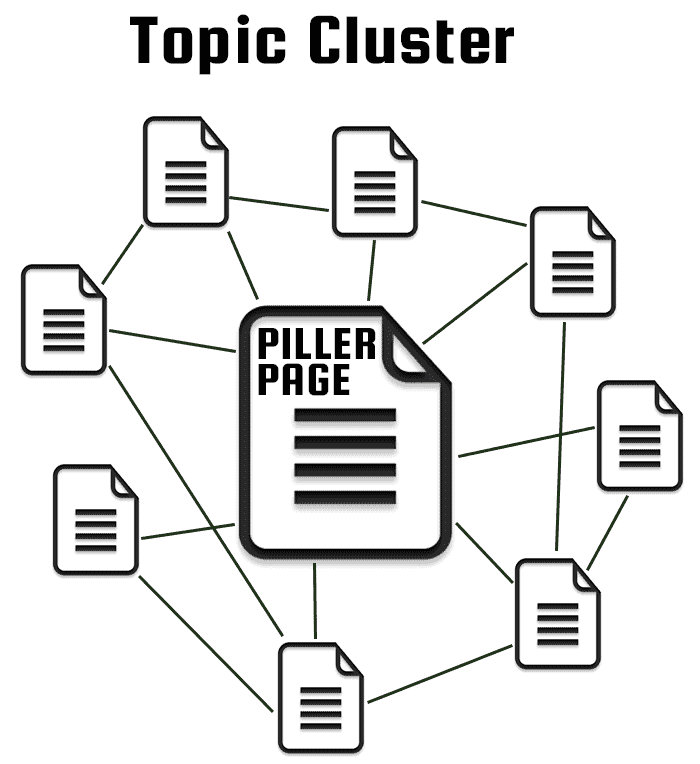Google is constantly looking for authoritative content. When people search for information, Google wants to provide them with best possible search results. This is achieved by topical authority. What is topical authority?
There may be two definitions, one by Google and one by your readers or users.
If you want to improve your search engine rankings, then topical authority means your authority and expertise in a particular niche or topic. For example, I would like to have a topical authority in the field of content writing and online copywriting. What do I do to achieve that? I try to cover as many topics as possible pertaining to content writing and online copywriting.
As you may know, content writing and copywriting for SEO isn’t just about writing content. There are many factors involved such as
- Quality of content
- Search engine optimization of content
- Writing keyword-centric content
- Writing content based on search intent
- Frequency of content writing and content publishing
- Writing topical, relevant content
- Writing style
- The authority you have already garnered
- Pillar pages and topic clusters
- Topical authority
Even these may have subtopics: search intent can be of different varieties such as informational intent, transactional intent, commercial intent, or navigational intent. It goes on and on, and you can keep writing on these topics and subtopics to increase your topical authority.
Why topical authority is important for SEO?
To rank you higher, Google wants to know if you have authority in your chosen field. It wants to know your content density for the topic you have chosen to write about.
Suppose you are an SEO company, and you know that content writing is important for search engine optimization. Therefore, you write a web page describing the benefits of high-quality content.
I have a similar page: benefits of high-quality content. Now, your web page may be excellent, but it is just a single web page dedicated to content writing on a website that is dedicated to SEO.
On the other hand, my page on content writing resides under a website that is dedicated to content writing. Who is supposed to have more authority on the topic?
Of course, if your SEO website already enjoys massive authority then this authority may also trickle down to the page on content writing and consequently, your page may rank higher than mine, but when it comes to topical authority, my page will have a higher authority over yours.
Is topical authority an SEO jargon? As per Google, topical authority is the perceived authority over a niche or a broad idea set, as opposed to authority over a singular idea or term.
What does that mean? Coming to the above content writing blogging example, if you are a digital marketing company and you also provide content writing services and you have published lots of content on content writing, you have authority over a broader niche. On the other hand, being a content writing website (a subset of digital marketing), when I publish content on content writing, I have authority over a single idea or term. In this regard, the digital marketing company has an edge over my website.
As you may already know Google uses artificial intelligence to rank links. Your topical authority signals to Google that your website has a deep understanding and a vast knowledge of the topic. If Google already considers your website a topical authority, then it is more likely to crawl quickly and rank your links higher.
Why should you focus on improving your topical authority?
Not many people are aware that in 2018 Google changed its algorithm, putting more emphasis on the topical authority of a website. Before this, news publishers had an advantage over smaller publishers due to the vast amount of content they have. Now, it is more about a narrow niche.
This way, a national newspaper publishing a gadget review isn’t going to hog search engine rankings if there is another website solely focusing on Gadget reviews publishes a gadget review.
The advantage is that you can focus on your niche instead of worrying about bigger publications inundating search results simply because they have swathes of content.
There are multiple benefits of improving your topical authority. Some of them are listed below:
- You will have scores of topics to write about.
- Your visitors will find every possible information they need on your website or blog itself.
- There will be more content for you to share on social media.
- You will have more content to re-purpose.
- You will generate a library of information which will be favored by Google.
- If people want to link to your website or share your links, they will have plenty of opportunities.
- You will be covering and capturing more keywords.
- Google will index more content from your website, increasing your presence in the process.
- When Google is looking for answers, it will find them on your website.
- When Google wants to display additional information, it will find it on your website.
How to build the topical authority of your website?
You can begin by preparing a long list of primary, secondary and long-term keywords that are relevant to your website. These will give you plenty of topics to cover.
You can ask your customers and clients what questions they would like to put in front of you before deciding to do business with you.
You can write case studies and white papers.
When you write blog posts and web pages there are many subtopics that you lightly touch upon. You can extract these subtopics and write complete blog posts and web pages on them, with further details. Later, you can link to these blog posts and web pages to increase the value of your existing blog posts and web pages.
You can either use external tools to track your keywords and what content other websites are publishing on those keywords, or you can do it manually. You can maintain an Excel sheet of the top blogs in your field. Then, once a day, you can quickly visit these blogs and see what new content they have published. You can either aggregate the content or get new blog post ideas from them.
To build your topical authority you need to
- Write quality content over a long period of time on your chosen subject.
- Primarily focus on creating E.A.T. content – Expertise, Authority, Trustworthiness.
- Cover as many topics and subtopics as are available.
- Strategically link to different topics.
- Put in effort towards improving your search engine rankings by paying attention to SEO content writing conventions.
- Maintain buzz on social media networks.
- Increase your visibility.
- Seek feedback and input from the peers.
Regularly coming up with topics to increase your topical authority may be difficult in the beginning, but once you get into the groove the topics will come to you naturally. Otherwise, you can always hire a professional content writer to write and publish content for you.



